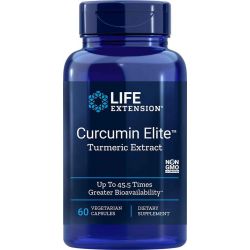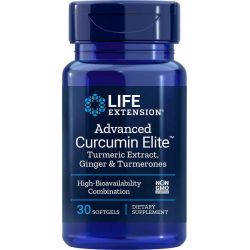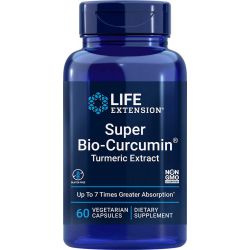Curcumin. Novel Turmeric Compound Delivers Much More Curcumin to the Blood part 2
Curcumin - Powerful Nervous System Protection
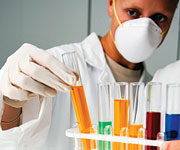 Among curcumin’s many benefits, protection from neurological damage ranks high on many researchers’ lists. “Curcumin has at least 10 known neuroprotective actions and many of these might be realized in [living subjects]…” wrote American scientists recently, in Advances in Experimental Medicine and Biology. “Dietary curcumin is a strong candidate,” they added, “for use in the prevention or treatment of major disabling age-related neurodegenerative diseases like Alzheimer’s, Parkinson’s, and stroke.”16
Among curcumin’s many benefits, protection from neurological damage ranks high on many researchers’ lists. “Curcumin has at least 10 known neuroprotective actions and many of these might be realized in [living subjects]…” wrote American scientists recently, in Advances in Experimental Medicine and Biology. “Dietary curcumin is a strong candidate,” they added, “for use in the prevention or treatment of major disabling age-related neurodegenerative diseases like Alzheimer’s, Parkinson’s, and stroke.”16
These scientists are not alone in their assessment of curcumin’s potential for protection against dreaded diseases such as Alzheimer’s. Numerous researchers are investigating curcumin’s protective activities in the brain. For example, Chinese scientists reported in early 2007 that curcumin protects the brains of laboratory animals from a type of injury that often follows stroke. Known as ischemia/reperfusion injury, this damage to brain tissue is believed to occur due to stroke-related deficits in the blood-brain barrier. A single injection of curcumin dramatically reduced ischemia-reperfusion damage, neurological deficits, and death, among animals with experimentally induced stroke.49
As another example, South African investigators wondered if curcumin could protect rats’ brains from lead poisoning.One way lead damages brain tissue is by inducing lipid peroxidation.50 Brain tissue is largely composed of lipids, so it’s especially vulnerable to this type of damage. By adding curcumin to test animals’ diets, lead toxicity was significantly reduced, possibly by raising concentrations of the antioxidant glutathione.51 Previously, Indian researchers reported that curcumin raised concentrations of glutathione and two potent antioxidant enzymes, superoxide dismutase and catalase, in the brains of lead-poisoned rats, significantly attenuating lead-induced damage.52
Other researchers report that curcumin may chelate, or bind to, toxic heavy metals, such as lead and cadmium, greatly reducing their toxicity to neurological tissues.53
Furthermore, scientists have reported that curcumin protects brain tissue against oxidative stress by promoting production of a protective enzyme, heme oxygenase-1 (HO-1). “In the [central nervous system],” wrote the researchers, “HO-1 has been reported to operate as a fundamental defensive mechanism for neurons exposed to an oxidant challenge.”54 Traumatic injury to the brain also results in oxidative stress, often affecting cognition and “synaptic plasticity,” which is believed to play a crucial role in healthy learning and memory. In animal experiments, US researchers showed, “Supplementation of curcumin in the diet dramatically reduced oxidative damage and… counteracted the cognitive impairment caused by [traumatic brain injury].”55
- One of today’s most promising natural disease-fighting agents is curcumin. Derived from the curry spice turmeric, curcumin has been used for millennia to target disease and promote good health.
- Most commercially available preparations of curcumin have very poor bioavailability, impairing their ability to confer life-sustaining properties.
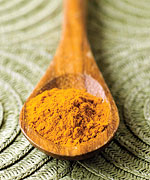
- Scientists have recently discovered a novel curcumin preparation with exceptional bioavailability. In a human study, this advanced curcumin preparation—termed BCM-95®—delivered up to seven times more curcumin to the bloodstream than a standard curcumin product. This increased bioavailability should greatly enhance curcumin’s benefits.
- Curcumin promotes health by diverse mechanisms. Scientists have documented curcumin’s anti-inflammatory, antioxidant, anti-microbial, neuroprotective, cancer-fighting, and immune-enhancing abilities.
- Studies suggest that curcumin may help prevent or fight prostate, pancreatic, breast, and colon cancers.
- Curcumin may help protect the brain against the devastating consequences of stroke and exposure to toxic heavy metals.
- Individuals who consume more curcumin-rich curry are less likely to experience cognitive decline, suggesting curcumin could help protect the nervous system against aging. In laboratory and animal models, curcumin shows promise in preventing the pathological changes seen in the brains of Alzheimer’s disease sufferers.
Curcumin - Cognitive Decline and Dementia
 Even in the absence of injury or toxicity, loss of cognitive function is a hallmark of aging. Memory loss is believed to begin by age 50, and, by age 80, it’s predicted that nearly half of all individuals will advance to some form of dementia.56
Even in the absence of injury or toxicity, loss of cognitive function is a hallmark of aging. Memory loss is believed to begin by age 50, and, by age 80, it’s predicted that nearly half of all individuals will advance to some form of dementia.56
Wondering if curcumin might protect aging brains from cognitive decline, Asian scientists conducted an epidemiological study of curry consumption and cognitive function among the elderly. They found that men and women who consumed turmeric-laced curry “occasionally,” “often,” or “very often,” had significantly better scores on a standardized test of mental status than subjects who “never or rarely” consumed curry. The investigators described these findings as “tentative evidence of better cognitive performance from curry consumption in nondemented elderly Asians…”25
Curcumin and Alzheimer’s Disease Protection
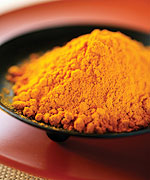 Curcumin may offer protection against the most common cause of dementia: Alzheimer’s disease. Alzheimer’s disease is characterized by the accumulation of a malformed protein, amyloid-beta. Ordinarily, immune cells known as macrophages identify these defective proteins, engulf them, and destroy them. But for reasons that are not entirely clear, macrophages fail to perform this crucial function in Alzheimer’s disease.57 Using animal models of Alzheimer’s, scientists have shown that curcumin can enhance clearance of amyloid-beta, while reducing fibrils, which are also associated with Alzheimer’s pathology. Curcumin’s ability to cross the blood-brain barrier and directly bind to plaques may be important in its anti-amyloid activity.58
Curcumin may offer protection against the most common cause of dementia: Alzheimer’s disease. Alzheimer’s disease is characterized by the accumulation of a malformed protein, amyloid-beta. Ordinarily, immune cells known as macrophages identify these defective proteins, engulf them, and destroy them. But for reasons that are not entirely clear, macrophages fail to perform this crucial function in Alzheimer’s disease.57 Using animal models of Alzheimer’s, scientists have shown that curcumin can enhance clearance of amyloid-beta, while reducing fibrils, which are also associated with Alzheimer’s pathology. Curcumin’s ability to cross the blood-brain barrier and directly bind to plaques may be important in its anti-amyloid activity.58
Los Angeles-based researchers tested the anti-amyloid activity of human macrophages taken from Alzheimer’s disease patients. After incubation with curcumin in the laboratory, uptake of amyloid-beta by macrophages from half of the patients significantly increased. The researchers concluded that this modification of the innate immune system by curcumin, “might be a safe approach to immune clearance of [abnormal amyloid-beta accumulation] in Alzheimer’s disease brain.”59 These data appear to indicate that curcumin is protective against the development of Alzheimer’s disease, and that it may even help reverse the disease process, once begun.
Safety and Dosing
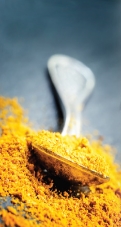 Given that turmeric is a food that has been safely consumed for millennia, curcumin would appear to be the perfect dietary supplement.3 In fact, “Curcumin has an outstanding safety profile and a number of [multifunctional] actions…” wrote US researchers recently.16 Phase I clinical trials, using massive doses of curcumin (up to 8 g/day for four months) in human volunteers, “did not result in discernible toxicities…”17
Given that turmeric is a food that has been safely consumed for millennia, curcumin would appear to be the perfect dietary supplement.3 In fact, “Curcumin has an outstanding safety profile and a number of [multifunctional] actions…” wrote US researchers recently.16 Phase I clinical trials, using massive doses of curcumin (up to 8 g/day for four months) in human volunteers, “did not result in discernible toxicities…”17
Of course, not everyone finds curry palatable, especially on a routine basis. But virtually anyone can swallow a simple daily supplement. Most commercial products provide 300-500 mg per pill, standardized to 95% curcumin. Reported adverse reactions have been limited to mild gastrointestinal distress, which may be minimized by consuming curcumin with food.60
Conclusion
In this overview, we’ve seen that curcumin has served mankind for thousands of years, and we’ve noted some of the potent benefits scientists continue to discover. The advent of a revolutionary delivery system promises to make these benefits available to anyone willing to take the proactive step of supplementing the diet with just one or two capsules of enhanced-bioavailable curcumin each day.
Note: BCM-95® is a registered trademark of Dolcas-Biotech, LLC. Material used with permission of Life Extension. All rights reserved.
1. Aggarwal BB, Sundaram C, Malani N, Ichikawa H. Curcumin: the Indian solid gold. Adv Exp Med Biol. 2007;59:51-75.
2. Araujo CC, Leon LL. Biological activities of Curcuma longa L. Mem Inst Oswaldo Cruz. 2001 Jul;96(5):723-8.
3. No authors. Curcuma longa (turmeric). Monograph. Altern Med Rev. 2001 Sep;6 Suppl S62-6.
4. Limtrakul P. Curcumin as chemosensitizer. Adv Exp Med Biol. 2007;595:269-300.
5. Lin JK. Molecular targets of curcumin. Adv Exp Med Biol. 2007;595:227-43.
6. Shishodia S, Singh T, Chaturvedi MM. Modulation of transcription factors by curcumin. Adv Exp Med Biol. 2007;595:127-48.
7. Bright JJ. Curcumin and autoimmune disease. Adv Exp Med Biol. 2007;595:425-51.
8. Miriyala S, Panchatcharam M, Rengarajulu P. Cardioprotective effects of curcumin. Adv Exp Med Biol. 2007;595:359-77.
9. Thangapazham RL, Sharma A, Maheshwari RK. Beneficial role of curcumin in skin diseases. Adv Exp Med Biol. 2007;595:343-57.
10. Shishodia S, Sethi G, Aggarwal BB. Curcumin: getting back to the roots. Ann NY Acad Sci. 2005 Nov;1056:206-17.
11. Menon VP, Sudheer AR. Antioxidant and anti-inflammatory properties of curcumin. Adv Exp Med Biol. 2007;595:105-25.
12. Jagetia GC, Aggarwal BB. “Spicing up” of the immune system by curcumin. J Clin Immunol. 2007 Jan;27(1):19-35.
13. Maheshwari RK, Singh AK, Gaddipati J, Srimal RC. Multiple biological activities of curcumin: a short review. Life Sci. 2006 Mar 27;78(18):2081-7.
14. Gautam SC, Gao X, Dulchavsky S. Immunomodulation by curcumin. Adv Exp Med Biol. 2007;595:321-41.
15. Funk JL, Oyarzo JN, Frye JB, et al. Turmeric extracts containing curcuminoids prevent experimental rheumatoid arthritis. J Nat Prod. 2006 Mar;69(3):351-5.
16. Cole GM, Teter B, Frautschy SA. Neuroprotective effects of curcumin. Adv Exp Med Biol. 2007;595:197-212.
17. Hsu CH, Cheng AL. Clinical studies with curcumin. Adv Exp Med Biol. 2007;595:471-80.
18. Osawa T. Nephroprotective and hepatoprotective effects of curcuminoids. Adv Exp Med Biol. 2007;595:407-23.
19. Wang W, Bernard K, Li G, Kirk KL. Curcumin opens cystic fibrosis transmembrane conductance regulator channels by a novel mechanism that requires neither ATP binding nor dimerization of the nucleotide-binding domains. J Biol Chem. 2007 Feb 16;282(7):4533-44.
20. Shoba G, Joy D, Joseph T, et al. Influence of piperine on the pharmacokinetics of curcumin in animals and human volunteers. Planta Med. 1998 May;64(4):353-6.
21. Benny M, Antony B. Bioavailability of Biocurcumax (BCM-095™). Spice India. 2006 Sept 9;19(9):11-5.
22. Antony B, Benny M, Kaimal TNB, et al. A controlled randomized comparative human oral bioavailability of “Biocurcumax™ (BCM-95® CG)—A novel bioenhanced preparation of curcuminoids. Study submitted for publication, 2007.
23. Available at: http://rarediseases.info.nih.gov/html/reports/fy2004/niddk.html; http://rarediseases.info.nih.gov/html/reports/fy2001/orwh.html; http://rarediseases.info.nih.gov/html/reports/fy2000/nci.html. Accessed August 1, 2007.
24. Mosley CA, Liotta DC, Snyder JP. Highly active anticancer curcumin analogues. Adv Exp Med Biol. 2007;595:77-103.
25. Ng TP, Chiam PC, Lee T, et al. Curry consumption and cognitive function in the elderly. Am J Epidemiol. 2006 Nov 1;164(9):898-906.
26. Lim GP, Chu T, Yang F, et al. The curry spice curcumin reduces oxidative damage and amyloid pathology in an Alzheimer transgenic mouse. J Neurosci. 2001 Nov 1;21(21):8370-7.
27. Li M, Zhang Z, Hill DL, Wang H, Zhang R. Curcumin, a dietary component, has anticancer, chemosensitization, and radiosensitization effects by down-regulating the MDM2 oncogene through the PI3K/mTOR/ETS2 pathway. Cancer Res. 2007 Mar 1;67(5):1988-96.
28. Singh S, Khar A. Biological effects of curcumin and its role in cancer chemoprevention and therapy. Anticancer Agents Med Chem. 2006 May;6(3):259-70.
29. Surh YJ, Chun KS. Cancer chemopreventive effects of curcumin. Adv Exp Med Biol. 2007;595:149-72.
30. Suryanarayana P, Krishnaswamy K, Reddy GB. Effect of curcumin on galactose-induced cataractogenesis in rats. Mol Vis. 2003 Jun 9;9:223-30.
31. Arun N, Nalini N. Efficacy of turmeric on blood sugar and polyol pathway in diabetic albino rats. Plant Foods Hum Nutr. 2002;57(1):41-52.
32. Dujic J, Kippenberger S, Hoffmann S, et al. Low concentrations of curcumin induce growth arrest and apoptosis in skin keratinocytes only in combination with UVA or visible light. J Invest Dermatol. 2007 Aug;127(8):1992-2000.
33. Salvioli S, Sikora E, Cooper EL, Franceschi C. Curcumin in Cell Death Processes: A Challenge for CAM of Age-Related Pathologies. Evid Based Complement Alternat Med. 2007 Jun;4(2):181-90.
34. Bhattacharyya S, Mandal D, Sen GS, et al. Tumor-induced oxidative stress perturbs nuclear factor-kappaB activity-augmenting tumor necrosis factor-alpha-mediated T-cell death: protection by curcumin. Cancer Res. 2007 Jan 1;67(1):362-70.
35. Churchill M, Chadburn A, Bilinski RT, Bertagnolli MM. Inhibition of intestinal tumors by curcumin is associated with changes in the intestinal immune cell profile. J Surg Res. 2000 Apr;89(2):169-75.
36. Pal S, Bhattacharyya S, Choudhuri T, et al. Amelioration of immune cell number depletion and potentiation of depressed detoxification system of tumor-bearing mice by curcumin. Cancer Detect Prev. 2005;29(5):470-8.
37. Perkins S, Verschoyle RD, Hill K, et al. Chemopreventive efficacy and pharmacokinetics of curcumin in the min/+ mouse, a model of familial adenomatous polyposis. Cancer Epidemiol Biomarkers Prev. 2002 Jun;11(6):535-40.
38. South EH, Exon JH, Hendrix K. Dietary curcumin enhances antibody response in rats. Immunopharmacol Immunotoxicol. 1997 Feb;19(1):105-19.
39. Kurup VP, Barrios CS, Raju R, et al. Immune response modulation by curcumin in a latex allergy model. Clin Mol Allergy. 2007;51.
40. Xu Y, Ku B, Tie L, et al. Curcumin reverses the effects of chronic stress on behavior, the HPA axis, BDNF expression and phosphorylation of CREB. Brain Res. 2006 Nov 29;1122(1):56-64.
41. Kim GY, Kim KH, Lee SH, et al. Curcumin inhibits immunostimulatory function of dendritic cells: MAPKs and translocation of NF-kappa B as potential targets. J Immunol. 2005 Jun 15;174(12):8116-24.
42. Bhattacharyya S, Mandal D, Saha B, et al. Curcumin prevents tumor-induced T cell apoptosis through Stat-5a-mediated Bcl-2 induction. J Biol Chem. 2007 Jun 1;282(22):15954-64.
43. Thangapazham RL, Sharma A, Maheshwari RK. Multiple molecular targets in cancer chemoprevention by curcumin. AAPS J. 2006;8(3):E443-9.
44. Johnson JJ, Mukhtar H. Curcumin for chemoprevention of colon cancer. Cancer Lett. 2007 Apr 18.
45. Hebert JR, Ghumare SS, Gupta PC. Stage at diagnosis and relative differences in breast and prostate cancer incidence in India: comparison with the United States. Asian Pac J Cancer Prev. 2006 Oct;7(4):547-55.
46. Kunnumakkara AB, Guha S, Krishnan S, et al. Curcumin potentiates antitumor activity of gemcitabine in an orthotopic model of pancreatic cancer through suppression of proliferation, angiogenesis, and inhibition of nuclear factor-kappaB-regulated gene products. Cancer Res. 2007 Apr 15;67(8):3853-61.
47. Howells LM, Mitra A, Manson MM. Comparison of oxaliplatin- and curcumin-mediated antiproliferative effects in colorectal cell lines. Int J Cancer. 2007 Jul 1;121(1):175-83.
48. Poma P, Notarbartolo M, Labbozzetta M, et al. The antitumor activities of curcumin and of its isoxazole analogue are not affected by multiple gene expression changes in an MDR model of the MCF-7 breast cancer cell line: Analysis of the possible molecular basis. Int J Mol Med. 2007 Sep;20(3):329-35.
49. Jiang J, Wang W, Sun YJ, et al. Neuroprotective effect of curcumin on focal cerebral ischemic rats by preventing blood-brain barrier damage. Eur J Pharmacol. 2007 Apr 30;561(1-3):54-62.
50. Lidsky TI, Schneider JS. Lead neurotoxicity in children: basic mechanisms and clinical correlates. Brain. 2003 Jan;126(Pt 1):5-19.
51. Dairam A, Limson JL, Watkins GM, Antunes E, Daya S. Curcuminoids, curcumin, and demethoxycurcumin reduce lead-induced memory deficits in male Wistar rats. J Agric Food Chem. 2007 Feb 7;55(3):1039-44.
52. Shukla PK, Khanna VK, Khan MY, Srimal RC. Protective effect of curcumin against lead neurotoxicity in rat. Hum Exp Toxicol. 2003 Dec;22(12):653-8.
53. Daniel S, Limson JL, Dairam A, Watkins GM, Daya S. Through metal binding, curcumin protects against lead- and cadmium-induced lipid peroxidation in rat brain homogenates and against lead-induced tissue damage in rat brain. J Inorg Biochem. 2004 Feb;98(2):266-75.
54. Scapagnini G, Colombrita C, Amadio M, et al. Curcumin activates defensive genes and protects neurons against oxidative stress. Antioxid Redox Signal. 2006 Mar;8(3-4):395-403.
55. Wu A, Ying Z, Gomez-Pinilla F. Dietary curcumin counteracts the outcome of traumatic brain injury on oxidative stress, synaptic plasticity, and cognition. Exp Neurol. 2006 Feb;197(2):309-17.
56. Braverman ER, Chen TJ, Prihoda TJ, et al. Plasma growth hormones, P300 event-related potential and test of variables of attention (TOVA) are important neuroendocrinological predictors of early cognitive decline in a clinical setting: Evidence supported by structural equation modeling (SEM) parameter estimates. AGE. 2007; [Epub ahead of print].
57. Fiala M, Lin J, Ringman J, et al. Ineffective phagocytosis of amyloid-beta by macrophages of Alzheimer’s disease patients. J Alzheimers Dis. 2005 Jun;7(3):221-32.
58. Yang F, Lim GP, Begum AN, et al. Curcumin inhibits formation of amyloid beta oligomers and fibrils, binds plaques, and reduces amyloid in vivo. J Biol Chem. 2005 Feb 18;280(7):5892-901.
59. Zhang L, Fiala M, Cashman J, et al. Curcuminoids enhance amyloid-beta uptake by macrophages of Alzheimer’s disease patients. J Alzheimers Dis. 2006 Sep;10(1):1-7.
60. Available at: http://www.pdrhealth.com/drug_info/nmdrugprofiles/nutsupdrugs/cur_0087.shtml. Accessed August 8, 2007.
61. Bioavailability study of BCM-95® in rats. Orcas International, Inc. 2006

